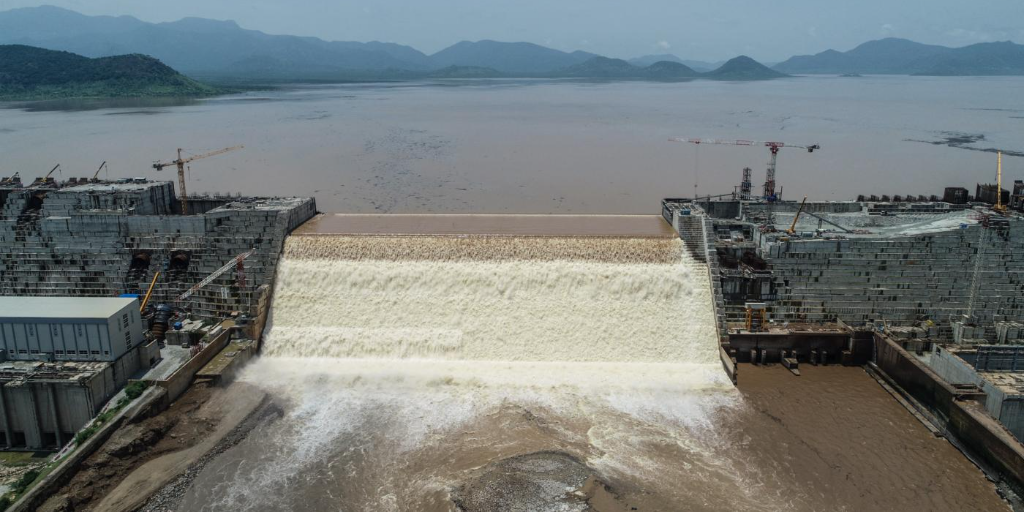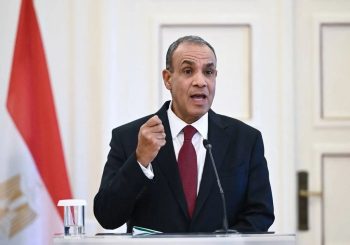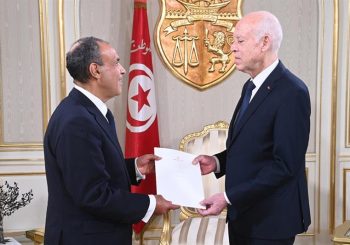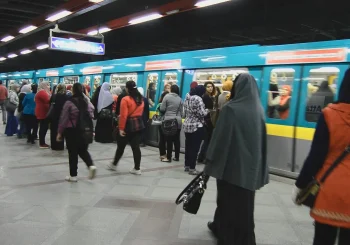Negotiations between Egypt, Ethiopia, and Sudan surrounding the long-disputed Grand Ethiopian Renaissance Dam (GERD) officially concluded on 19 December, failing to produce an agreement.
In a statement posted on Facebook, Egypt’s Ministry of Irrigation and Water Resources attributed the failure to Ethiopia’s ongoing rejection of proposed technical and legal solutions that would protect the interests of all three countries.
This was the fourth round of trilateral talks held by the three governments since Egyptian President Abdel Fattah Al-Sisi and Ethiopian Prime Minister Abiy Ahmed agreed to resume talks in July 2023 and reach a solution to the dispute in four months.
Minister of Irrigation and Water Resources Hani Sewilam declared it would be Egypt’s last attempt.
“The world continues to await an agreement from these negotiations, but they now must know that all talks have stopped,” Sewilam stated in a live interview with talk show host Lamis Elhadidy on 19 December.
The ministry and Sewilam emphasized Ethiopia’s consistent backtracking on previously agreed-upon understandings among the nations.
“Ethiopia elects to continue exploiting the negotiation as a cover to solidify a fait accompli on the ground while negotiating solely to obtain approval from the downstream countries for unregulated and absolute Ethiopian control of the Blue Nile, disregarding Ethiopia’s obligations under international law,” reads the statement.
The four-round negotiation failure comes almost three years after negotiations sponsored by the African Union in April 2021 also ended with no results.
In a separate statement, Ethiopia’s Ministry of Foreign Affairs “endeavoured and keenly engaged” with Egypt and Sudan to settle differences amicably, and that it was Egypt’s “colonial era mentality” that created roadblocks during discussions.
Ethiopia also expressed willingness to resume negotiations for a settlement that considers the interests of all three countries.
Both Egypt and Sudan continue to strive for a binding agreement on the GERD’s filling and operation, which Ethiopia continues to avoid in favour of non-binding guidelines that can be modified.
Despite no binding agreement reached, Ethiopia unilaterally completed the fourth phase of filling the GERD reservoir in September – a violation of the Declaration of Principles signed by Egypt, Ethiopia and Sudan in 2015.
Egypt, heavily reliant on the Nile for its water needs, is concerned that the dam will further strain its already scarce water supply.
Egypt receives an average of 60 billion cubic meters, mainly from the Nile and underground water, while needing up to 114 billion cubic meters annually.
The country faces water scarcity, with an annual share of 560 cubic meters per person, well below the international threshold.
Subscribe to the Egyptian Streets’ weekly newsletter! Catch up on the latest news, arts & culture headlines, exclusive features and more stories that matter, delivered straight to your inbox by clicking here.








Comments (5)
[…] announced the cessation of negotiations in December 2023 as a result of Ethiopia’s unilateral […]
[…] announced the cessation of negotiations in December 2023 as a result of Ethiopia’s unilateral […]